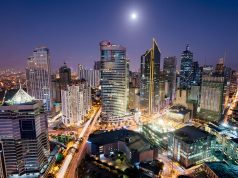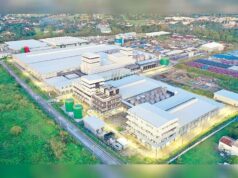
TWO companies hope to address Luzon’s waste management problem by building facilities that turn waste into crude oil and power, based on press releases they separately issued on Wednesday.
These are businessman Enrique K. Razon, Jr.’s infrastructure firm Prime Infrastructure Holdings Corp. (Prime Infra) and Metro Clark Waste Management Corp.
Prime Infra said it had created a new subsidiary with US-based company WasteFuel Global for a planned biorefinery in Luzon.
The new unit, WasteFuel Philippines, will look at building a refinery that will convert over 1 million tons of municipal waste into 30 million gallons of low-carbon synthetic crude oil per year.
The biorefinery plant is targeted to begin operations by 2025.
“The Philippines’ capital region alone generates around 10,000 tons of municipal solid waste per day, equivalent to the weight of approximately 17 Airbus A380 planes. At WasteFuel Philippines, our goal is to turn waste into a valuable source of clean energy, thus improving waste management processes and reducing carbon emissions from transportation,” Prime Infra President Guillaume Lucci said.
Prime Infra owns infrastructure assets covering renewable and sustainable energy, water, and construction.
In a separate press release, waste management system developer Metro Clark said that it’s gearing up to begin the construction of a $200-million “Secondary Fuel Power Plant,” which it hopes to improve waste disposal capacity in Central Luzon.
The plant is a joint venture between Metro Clark and Plambeck-Emirates Global Renewable Energy LLC, a partnership between a German technology firm and the Royal family of Abu Dhabi.
The facility will be built on the company’s 100-hectare site in the Clark Economic Zone, which is under the Bases Conversion Development Authority (BCDA).
“The system will serve the entire Region 3, providing municipal solid waste transfer, treatment, and disposal services to LGU’s (local government units) and industrial clients in the entire area, and produce up to 35 megawatts of power that can be fed back into the region’s distribution grid,” Metro Clark said.
It told BusinessWorld on Wednesday that it was awaiting the project’s approval from the BCDA.
“Once the proposal is approved, groundbreaking can happen shortly after,” it said in an e-mail, adding that it will take three to four years to complete the project.
Metro Clark is the developer of the solid waste management system of Clark Freeport and the Special Economic Zone, including New Clark City.
According to a report released by the McKinsey Center for Business and Environment last year, the Philippines was tagged as the world’s third-biggest polluter, as it generates 2.7 million metric tons of plastic wastes annually. — Angelica Y. Yang



